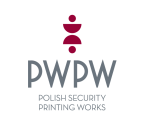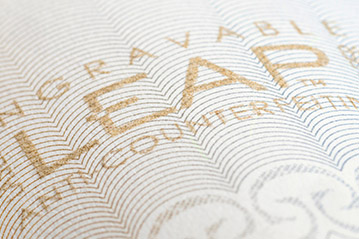PWPW
offers a broad range of solutions applied in an electronic layer of documents. They are used for storing the holder's data, ensure security of such data and enable the use of electronic documents in modern services, processes and electronic transactions.
PWPW
SmartApp®
PWPW
SmartApp® products are used in cards and electronic documents such as biometric passports, electronic identity cards, IDs and cryptographic cards. PWPW
SmartApp® solutions are composed of specialist software (the so-called applet) developed by PWPW software engineers, an operating system and a special microchip dedicated to applications that require high security level. The applied technology offers the highest level of security of the stored data and broad possibilities of use of PWPW
SmartApp® in electronic services and transactions. It also offers broader opportunities for users and control/inspection authorities.
PWPW SmartApp-ID
PWPW SmartApp-ID products are intended for biometric passports and electronic residence cards for foreigners. They may also be used in other types of identity documents. Security mechanisms implemented in this product protect integrity and authenticity of the stored data, prevent its counterfeiting and unauthorised reading, and enable faster immigration control and better border protection.
PWPW SmartApp-ID 3.1 (IFX) encompasses state-of-the-art Supplemental Access Control (SAC) mechanism which, in accordance with the requirements of the European Commission, must be used in all passports and residence cards issued from the beginning of 2015 and is recommended by the International Civil Aviation Organisation (ICAO) to be used in electronic passports all over the world. In 2014, PWPW SmartApp-ID 3.1 (IFX) with SAC mechanism was awarded a prestigious Common Criteria Certificate.
From the beginning of 2015, PWPW SmartApp-ID 3.1 (IFX) has been used in Polish passports and Polish residence cards for foreigners. SmartApp-ID products are also used in documents of the Republic of Lithuania and Armenia.
PWPW SmartApp-CRYPTO
PWPW SmartApp-CRYPTO products are intended for cryptographic use such as electronic signature, data encrypting and data authentication/validation in IT systems. These products may be used in cryptographic cards, IDs and corporate cards. In addition to the above listed functionalities the newest PWPW SmartApp-CRYPTO 3.0 product enables safe storing of user data in a special system of files and is compatible with Mifare technology dedicated to municipal and access cards. PWPW SmartApp-CRYPTO does not require any additional middleware – it is serviced directly by Microsoft Windows systems. The product complies with the Microsoft Generic Identity Device Specification.
Biometrics is used in both IT systems supporting personalisation processes of eIDs and ePassports as well as in the documents themselves through the introduction of an additional line of security features that are extremely difficult to break. PWPW has knowledge, technical resources and certified references for projects using biometric techniques in Poland (the Polish passport system) and abroad (Armenia – ID and passport system, Lithuania – passport system, Bangladesh – passport system). In addition, PWPW holds an AFIS solution for central servicing of biometric data, including the recording of data in the central database and provision of verification and identification services, as well as quality evaluation of biometric data, i.e., fingerprints and face photograph. As part of its research and development work, PWPW further develops this security element through participation in projects for the Border Guards and as part of internal work on automatic biometric-based user recognition mechanisms.
PWPWTrace® - a special type of system security – it is a multifunctional platform which enables product tracking at any stage of the supply chain: from the manufacturer up to the final retail outlet. It not only secures the product through its marking with an unique code but also guarantees integrity of the supply chain. PWPW.trace is the sole type of IT security system that enables effective verification of product authenticity and its tracking as well as allows for effective combating trade in counterfeited goods. This solution meets the needs of potential clients (domestic and foreign) from tobacco, pharmaceutical, food processing and cosmetic sectors and firms that focus on protection of their respective brands. The system meets the requirements of, among others, EU Directive in the area of the tracking of tobacco products.
PKI / e-Signature – PWPW has its own Public Key Infrastructure (PKI) required for the provision of electronic certification services, including, among others, issuance of qualified certificates and time stamping. PWPW offers transactional systems based on its own technological products and integrates them with solutions already held by the client. PKI products are offered both in service model as well as implementation model. The key function of e-signature is to secure authenticity of an electronic document.
Dual interface – PWPW products intended for cards and documents may, depending on their purpose, employ various communication interfaces: contact, contactless or both of them jointly, i.e., the so-called dual interface. PWPW has developed a technology that enables it to produce all the above listed types of cards and documents, including state-of-the-art dual cards, for example, for the banking sector.












































